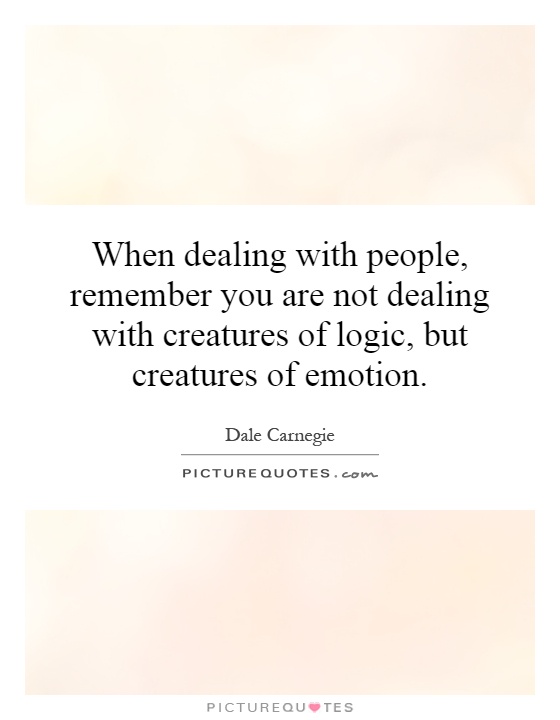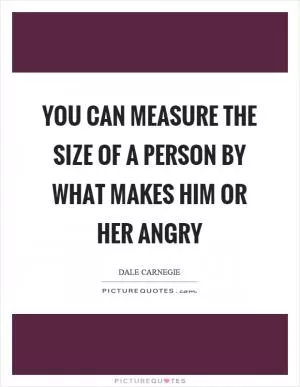When dealing with people, remember you are not dealing with creatures of logic, but creatures of emotion

When dealing with people, remember you are not dealing with creatures of logic, but creatures of emotion
Dale Carnegie, the renowned author and self-improvement guru, understood the importance of emotional intelligence when it comes to dealing with people. His famous quote, "When dealing with people, remember you are not dealing with creatures of logic, but creatures of emotion," highlights the fact that human beings are driven by their emotions rather than pure logic. This insight is crucial for anyone looking to build successful relationships, whether in business or personal life.Carnegie's teachings emphasize the importance of empathy, understanding, and effective communication in order to connect with others on an emotional level. He believed that by acknowledging and validating people's emotions, we can build trust, rapport, and ultimately influence them in a positive way. This approach is in stark contrast to the traditional view of human behavior, which often focuses on rational decision-making and logical arguments.
In his best-selling book, "How to Win Friends and Influence People," Carnegie provides practical advice on how to navigate social interactions and build meaningful connections with others. He emphasizes the importance of listening, showing genuine interest, and making others feel important. By focusing on the emotional needs and desires of people, rather than just their logical reasoning, Carnegie teaches us how to create lasting relationships based on mutual respect and understanding.
One of the key principles of Carnegie's teachings is the power of positive reinforcement. He believed that by praising and encouraging others, we can inspire them to achieve their full potential. This approach is rooted in the understanding that emotions play a significant role in shaping behavior and motivation. By appealing to people's emotions, we can influence their actions and attitudes in a more effective way than through logical arguments alone.












 Friendship Quotes
Friendship Quotes Love Quotes
Love Quotes Life Quotes
Life Quotes Funny Quotes
Funny Quotes Motivational Quotes
Motivational Quotes Inspirational Quotes
Inspirational Quotes